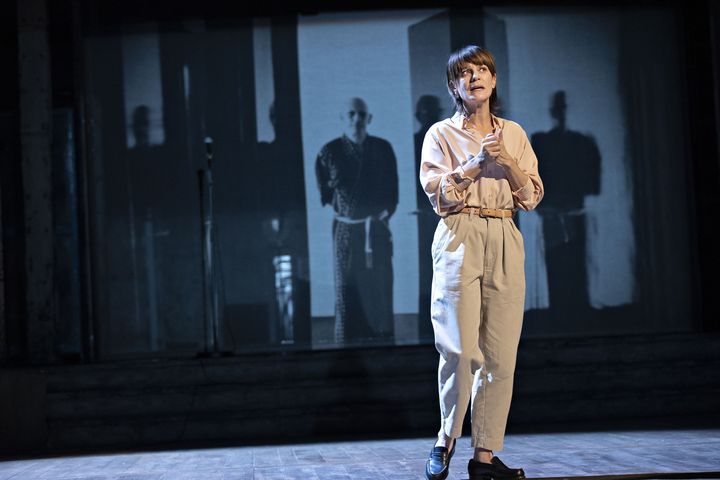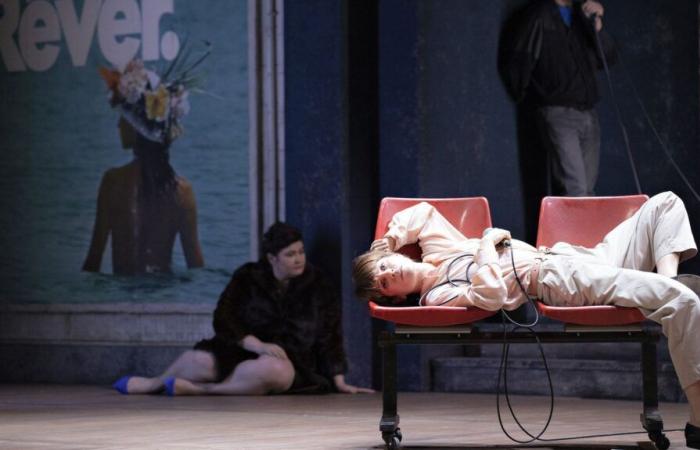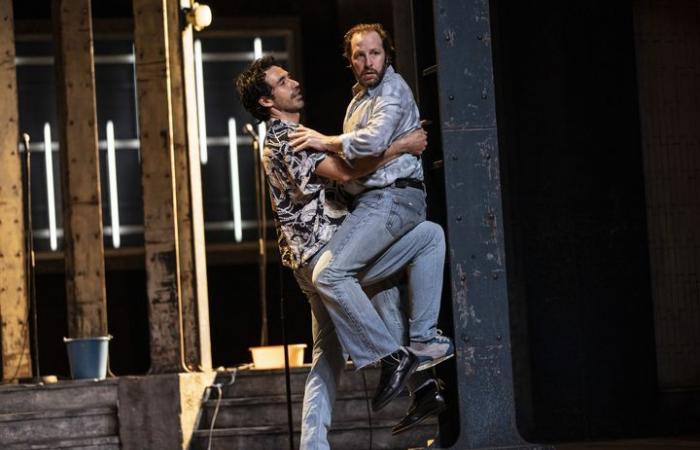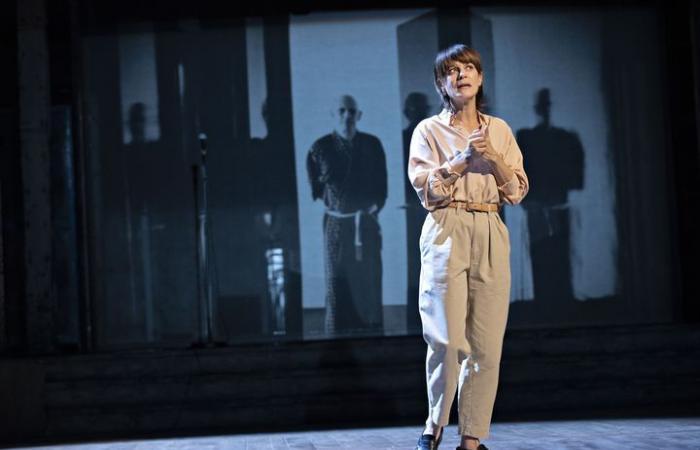The show, written in 2018, takes over the stage of the Théâtre de la Porte Saint-Martin, in Paris, until April 6. A definitive observation: The Idols by Christophe Honoré shines with intelligence, tenderness and humor. Because we often laugh, despite the seriousness. In this play, the author and director pays tribute to the six artists, all of whom died of AIDS, who left their mark on him when he was around twenty years old: Bernard-Marie Koltès, Hervé Guibert, Cyril Collard, Serge Daney, Jean-Luc Lagarce and Jacques Demy.
The plateau is inhabited in all its depth by a post-industrial urban setting, underground, as if in limbo. The six actors respond to each other, with crafted texts and formulas that click, to better bring Christophe Honoré’s idols to life. One of them wonders “if all the fags who survived” became Renaud Camus, far-right activist and author of the theory of “big replacement”. The tone is set: the past is summoned to inhabit the present.

In the 1990s, Christophe Honoré was 20 years old and was passionate about cinema and literature. He dreams of leaving his native Brittany to settle in Paris, and meet his idols, with whom he identifies. In the prologue of the piece, in voice-over, he narrates his discovery at the Beaubourg Dance Show Center Strange days by choreographer Dominique Bagouet.
Love at first sight, the young Breton is under the spell. Returning home to Rennes, he researched the choreographer. “I discovered what I was already certain of, that he had died of AIDS not long before. I was sure because it was the time when all the artists I fell in love with were dying of AIDS : Koltès, Guibert, Demy, Daney, Lagarce, Collard… This time, Bagouet.”
On the stage therefore, a meeting, a communion even, from beyond the grave. Through his “six older brothers”, Christophe Honoré questions desire, death, hatred of others and mourning. Born from a revolt, from an indignation, The Idols is intended as a response to those who took to the streets to protest against the law on marriage for all. “As a homosexual, I was hurt by this violent homophobia.”
As in his previous creation, New novel, it sets up a system in which the protagonists settle scores, throw barbs at each other and… love each other. Because behind the reproaches, there is a lot of kindness and tenderness. And understanding.
-Thus Jacques Demy, played masterfully by Marlène Saldana, alternately reserved and exuberant, is criticized for keeping silent about his homosexuality and doing everything to please the bourgeoisie. On the contrary by Hervé Guibert who does not fear revelation and intimacy to evoke AIDS without restraint in his autobiographical novel To the friend who didn’t save my life (Gallimard).

The monologue of Marina Foïs, who embodies Hervé Guibert with restraint and sensitivity, is one of the highlights of this piece. The relationship between the author of The Death propaganda and Musil (Michel Foucault) is overwhelmingly authentic. Hervé Guibert narrates with great modesty the illness, the loss of faculties, the slow agony and the death of his philosopher friend.
In this distribution, it is Paul Kircher, César for best male revelation, noticed in the cinema in The Animal Kingdom and in Their children after themwho plays, for his theater premiere, a Bernard-Marie Koltès prey to his desires.
Supported by a five-star cast, The Idols is a tragic and sensitive work, where drama and fantasy come together, to make us experience the most beautiful emotions of theater.
Writing and directing: Christophe Honore
Duration : 2h10
Distribution : Harrison Arévalo, Jean-Charles Clichet, Marina Foïs, Julien Honoré, Paul Kircher, Marlène Saldana
Scenography: Alban Ho Van
Light : Dominique Bruguiere assisted by Pierre Gaillardot
Costumes : Maxime Rappaz
Assistant director : Christèle Ortu
Assistant dramaturgie : Timothy Picard
Dates : until April 6, 2025
Lieu : Porte Saint-Martin Theater, 18 boulevard Saint-Martin, 75010 Paris








